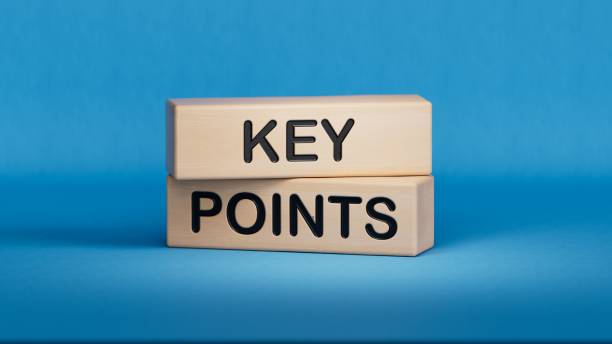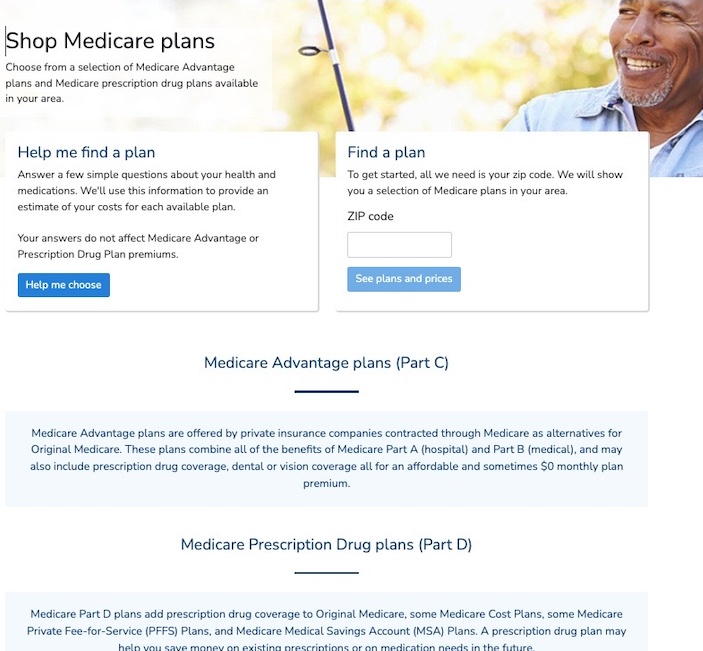Medicare Part D
Prescription Drug Coverage Explained
Medicare Part D helps cover the cost of prescription medications through private drug plans approved by Medicare.
May River Medicare Insurance is a nationwide, independent Medicare agency. We show drug plans, formularies, pharmacies, and costs up front — before you speak to anyone. No pressure. No surprises. Nationwide transparency.
Part D helps pay for medications you pick up at retail or mail-order pharmacies.
Coverage is provided by Medicare-approved private insurance companies.
Delaying Part D without creditable drug coverage can result in a lifetime penalty.
- Generic and brand-name medications
- Drugs listed on the plan’s formulary
- Medications filled at network pharmacies
- Drugs grouped into cost tiers
- Copays vary by tier and pharmacy
- Formularies can change yearly
- Lower costs at preferred pharmacies
- Mail-order options available
- Pharmacy networks apply
- Most adult vaccines covered
- Often $0 cost at network pharmacies
- No deductible for many vaccines
Part D plans typically have a monthly premium and may include an annual deductible. Costs vary by plan and carrier.
Your share of costs depends on the drug tier, pharmacy used, and stage of coverage.
Drug plans change every year. Formularies, pharmacies, premiums, and copays can all change. Reviewing your Part D coverage annually helps avoid unexpected medication costs.
Compare Medicare Part D Plans in Your Area
Enter your prescriptions, compare drug plans by ZIP code, see pharmacy pricing, or start your application online today with May River Medicare.
Part D Drug Plans
Cost| Cost-sharing| Enrollment| Get Help

Key Points
- *Medicare Part D Provides prescription drug coverage to Medicare beneficiaries
- *Each Part D plan will have a premium and cost-sharing for covered drugs.
- *There are specific enrollment periods during the year for you to enroll in a Part D
plan or change to a different plan.

Medicare Part D, the prescription drug benefit, is the part of Medicare that covers most outpatient prescription drugs. Part D is offered through private companies either as a stand-alone plan, for those enrolled in Original Medicare, or as a set of benefits included with your Medicare Advantage Plan.
Unless you have creditable drug coverage and will have a Special Enrollment Period, you should enroll in Part D when you first get Medicare. If you delay enrollment, you may face gaps in coverage and enrollment penalties.
Medicare drug coverage helps pay for prescription drugs you need. It’s optional and offered to everyone with Medicare. Even if you don’t take prescription drugs now, consider getting Medicare drug coverage. If you decide not to get it when you’re first eligible, and you don’t have other creditable prescription drug coverage (like drug coverage from an employer or union) or get Extra Help, you’ll likely pay a late enrollment penalty if you join a plan later. Generally, you’ll pay this penalty for as long as you have Medicare drug coverage. To get Medicare drug coverage, you must join a Medicare-approved plan that offers drug coverage. Each plan can vary in cost and specific drugs covered.
There are 2 ways to get Medicare drug coverage
1. Medicare drug plans. These plans add drug coverage to Original Medicare, some Medicare Cost Plans, some Private Fee‑for‑Service plans, and Medical Savings Account plans. You must have
Medicare Part A (Hospital Insurance) and/or Medicare Part B (Medical Insurance) to join a separate Medicare drug plan.2.
Medicare Advantage Plan (Part C) or other Medicare health plan with drug coverage. You get all of your Part A, Part B, and drug coverage, through these plans. Remember, you must have Part A and Part B to join a Medicare Advantage Plan, and not all of these plans offer drug coverage.To join a Medicare drug plan, Medicare Advantage Plan, or other Medicare health plan with drug coverage, you must be a United States citizen or lawfully present in the United States.
All plans must cover a wide range of prescription drugs that people with Medicare take, including most drugs in certain protected classes,” like drugs to treat cancer or HIV/AIDS. A plan’s list of covered drugs is called a “formulary,” and each plan has its own formulary. Medicare drug coverage typically places drugs into different levels, called “tiers,” on their formularies. Drugs in each tier have a different cost. For example, a drug in a lower tier will generally cost you less than a drug in a higher tier.
Your actual drug coverage costs will vary depending on:
- Your prescriptions and whether they’re on your plan’s list of covered drugs (formulary).
- What “tier” the drug is in.
- Which drug benefit phase you’re in (like whether you’ve met your deductible, or if you’re in the catastrophic coverage phase).
- Which pharmacy you use (whether it offers preferred or standard cost sharing, is out of network, or is mail order). Your out-of-pocket drug costs may be less at a preferred pharmacy because it has agreed with your plan to charge less.
- Whether you get Extra Help paying your Medicare drug coverage costs.
Employer or union coverage
This is health coverage from your, your spouse’s, or other family member’s current or former employer or union. If you have drug coverage based on your current or previous employment, your employer or union will notify you each year to let you know if your drug coverage is creditable. Keep the information you get. Call your benefits administrator for more information before making any changes to your coverage.
COBRA
There may be reasons why you should take Medicare drug coverage instead of, or in addition to, COBRA. If you take COBRA and it includes
creditable prescription drug coverage, you’ll have a special enrollment period to join a Medicare drug plan without a penalty when COBRA ends.Talk with your State Health Insurance Assistance Program (SHIP) to see if COBRA is a good choice for you. If you have questions about Medicare and COBRA, call the Benefits Coordination & Recovery Center at 1-855-798-2627 (TTY: 1-855-797-2627).
Medicare Supplement Insurance (Medigap) policy with prescription drug coverage
It may be to your advantage to join a Medicare drug plan because most
Medigap drug coverage isn’t creditable. You may pay more if you join a drug plan later.Medigap policies can no longer be sold with prescription drug coverage, but if you have drug coverage under a current Medigap policy, you can keep it. If you join a Medicare drug plan, your Medigap insurance company must remove the prescription drug coverage under your Medigap policy and adjust your premiums. Call your Medigap insurance company for more information.
Medicaid
Your drug costs are covered by Medicare. You’ll need to join a Medicare drug plan for Medicare to pay for your drugs.
In most cases, you’ll pay a small amount for your covered drugs. If you have full coverage from Medicaid and live in a nursing home , you pay nothing for covered prescription drugs after Medicaid has paid for your stay for at least one full calendar month.
If you have full coverage from Medicaid and live in an assisted living or adult living facility, or a residential home, you’ll pay a small
copayment for each drug.If you don’t join a drug plan, Medicare will enroll you in one to make sure you don’t miss a day of coverage. If you decide you want another plan, you can switch to another plan at any time.
Supplemental Security Income Benefits
If you get benefits or help from your state Medicaid program paying your Medicare premiums, you need to join a Medicare drug plan for Medicare to cover your drugs. You automatically qualify for Extra Help with your prescription drug costs. If you don’t join a plan, Medicare will enroll you in one to make sure you don’t miss a day of coverage.
State Pharmaceutical Assistance Program
Each state decides how its State Pharmaceutical Assistance Program (SPAP) works with Medicare prescription drug coverage. Some states give extra coverage when you join a Medicare drug plan. Some states have a separate state program that helps with prescriptions. Contact your SPAP to get more information.
Long-term care facility
Long-term care pharmacies contract with Medicare drug plans to provide drug coverage to their residents. If you’re entering, living in, or leaving a nursing home, you’ll have the opportunity to choose or switch your Medicare drug plan. This allows you to choose a plan that contracts with your nursing home’s pharmacy.
The types of insurance listed below are all considered creditable prescription drug coverage . If you have one of these types of insurance, in most cases, it will be to your advantage to keep your current coverage.
This is health coverage for current and retired federal employees and covered family members. These plans include creditable prescription drug coverage, so you don’t need to get Medicare drug coverage. However, if you decide to get Medicare drug coverage, you can keep your FEHB plan, and in most cases, Medicare will pay first. For more information, visit opm.gov/healthcare-insurance/healthcare, or call the Office of Personnel Management at 1‑888‑767‑6738. Visit opm.gov/retirement-services/benefits-officers-center/agency-benefits-officers for a list of Benefits Officers. You can also call your plan if you have questions.
This is health coverage for veterans and people who have served in the U.S. military. You may be able to get drug coverage through the U.S. Department of Veterans Affairs (VA) program. You may join a Medicare drug plan, but if you do, you can’t use both types of coverage for the same drug at the same time. For more information, contact the VA.


